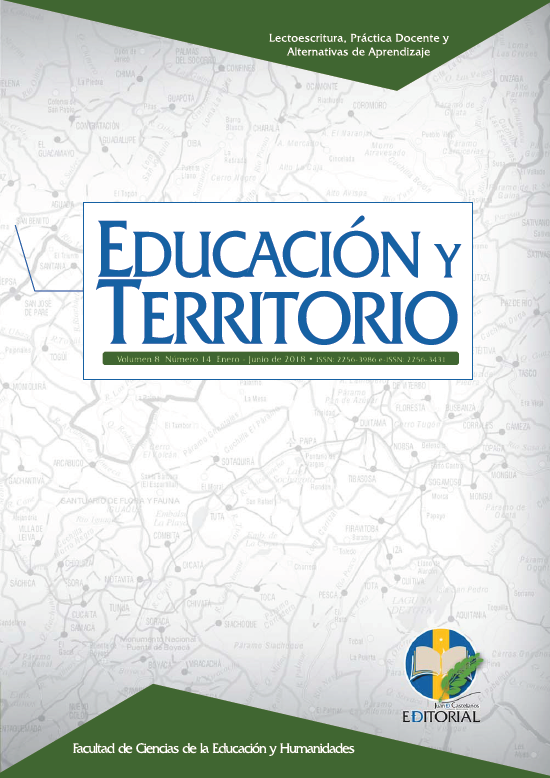Design of playful-pedagogical strategies in teaching literacy for students with special learning needs
DOI:
https://doi.org/10.38017/22563989.666Keywords:
literacy, ludic, special learning needsAbstract
It is proposed ludic-pedagogical strategies in the teaching of reading and writing for students with special learning needs, designed according to their characterization, which made it possible to determine the most frequent shortcomings, as well as their abilities and motivations. Experiences were systematized with an approach focused on a participatory intervention process, by using techniques such as observation and survey to collect information. It was demonstrated that motivating them, strategies were useful for the teaching process of these students; however, it was evidenced the lack of family support, curricular transformations, and effective state policies for inclusion, impeding the progressive progress they may achieve. In addition, it was concluded that the absence of medical diagnoses is one of the main drawbacks when responding in an appropriate manner to these cases. The active participation of all education agents (school-family-State) is necessary to meet the needs of students with special learning needs; it is essential that parents and teachers be able to correctly satisfy these needs, and timely diagnosis and registration be carried out to guarantee effective state policies.
Author Biography
Claudia Virginia Jaramillo Tangarife, Institución Educativa Leocadio Salazar, Ulloa-Valle del Cauca
Licenciada en Educación Preescolar
References
Recuperado de https://www.aeped.es/sites/default/files/documen- tos/6-down.pdf.
Cerda, H. (1991). Los elementos de la investigación: como reconocerlos, diseñarlos y construirlos. Bogotá, Colombia: Editorial Magisterio.
Cruz, M., y Hoyos, A. (2017). Estrategias didácticas con el uso de residuos en la atención de necesidades educativas especiales en la modalidad escuela nueva en la insti- tución educativa Caimo sede Pantanillo, Armenia, Quindío. (Tesis de pregrado). Universidad del Quindío, Armenia, Colombia.
Gatii, B. A. (2005). Habilidades cognitivas y competencias sociales. Revista Enunciación, 10(1), 123-132. Recuperado de https://revistas.udistrital.edu.co/ ojs/index.php/enunc/article/view/462.
Lourido, D. C. (2017). Necesidades educativas especiales de escolares en Pasto, Colombia. Revista Fedumar : pedagogía y educación, 4(1), 127-143. Recuperado de www.ojseditorialumariana.com/index.php/fedumar/ article/download/1510/1472/.
Lugones, M. et al. (2006). Síndrome de Kabuki. Revista Cubana de Pediatría, 78(2), 1-4. Recuperado de http://scielo.sld.cu/scielo. php?script=sci_arttext&pid=S0034-75312006000200011.
Ministerio de educación Nacional. (2014). Escuela Nueva. Recuperado de https://www.mineducacion.gov.co/1759/w3-article-340089.html.
Ministerio de Educación Nacional. (2017). Decreto 1421. Recuperado de http://
www.suin-juriscol.gov.co/viewDocument.asp?ruta=Decretos/30033428
Molina, Y. (2015). Necesidades educativas especiales, elementos para una propuesta de inclusión educativa a través de la inves- tigación acción participativa. Revista Estudios Pedagógicos, 4(Núm. esp.), 1-22. Recuperado de https://scielo.conicyt.cl/scielo. php?script=sci_arttext&pid=S0718-07052015000300010.
Monereo, C. et al. (1994). Estrategias de enseñanza y aprendizaje. Formación del
profesorado y aplicación en la escuela. Barcelona, España: Editorial Graó.
Monereo, C. (1997). Profesores y alumnos estratégicos: cuando aprender es consecuencia
de pensar. Madrid, España: Pascal Editorial.
Niño, V. (2011). Metodología de la investigación: diseño y ejecución. Bogotá, Colombia: Ediciones de la U.
Organización Mundial de la Salud. (2007). Una vacuna mejor contra la meningitis podría marcar el final de este flagelo mortífero en África. Recuperado de https:// www.who.int/mediacentre/news/releases/2007/pr28/es/.
Organización Mundial de la Salud. (2018). Trastornos mentales. Recuperado de ht- tps://www.who.int/es/news-room/fact-sheets/detail/mental-disorders.




